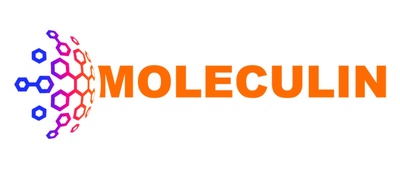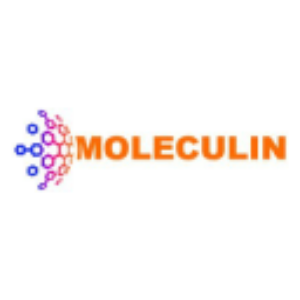Moleculin Provides Update on Second Multiple Ascending Dose (MAD) Cohort in Phase 1a Clinical Trial of WP1122 in the UK
Moleculin Biotech, Inc. (Nasdaq: MBRX) has provided an update on its Phase 1a clinical trial for WP1122, designed to treat resistant tumors and viruses. The second multiple ascending dose (MAD) cohort was halted due to adverse events in 2 subjects, leading to the initiation of MAD cohort 2a at 48 mg/kg. The trial includes around 70 subjects and aims to establish a maximum tolerated dose. While initial doses were well tolerated, the company aims to explore WP1122's potential against COVID-19 and other severe infections. Future studies may occur in additional countries.
- Initiation of MAD cohort 2a at a reduced dose of 48 mg/kg after safety concerns in the previous cohort.
- The first two MAD cohorts showed initial doses were well tolerated, supporting further exploration of WP1122.
- Receipt of IND clearance from the FDA for a Phase 1 study of WP1122 targeting Glioblastoma Multiforme.
- Halting of the second MAD cohort due to adverse events in 2 subjects, raising concerns about safety.
- Volatility in COVID-19 incidence may hinder the ability to conduct Phase 2 trials in certain countries.
Company enters what it expects to be the final MAD cohort in the first-in-human Phase 1a designed to establish a maximum tolerated dose (MTD)
HOUSTON, Oct. 14, 2022 /PRNewswire/ -- Moleculin Biotech, Inc., (Nasdaq: MBRX) ("Moleculin" or the "Company"), a clinical stage pharmaceutical company with a broad portfolio of drug candidates targeting highly resistant tumors and viruses, today provided an update on the preliminary results from the second multiple ascending dose (MAD) cohort of the Company's first-in-human Phase 1a study of WP1122. This cohort consisted of an initial 4 subjects, who were scheduled to be dosed daily for 7 days with 64 mg/kg/day of WP1122 or placebo in the dose escalation trial evaluating the safety and pharmacokinetics (PK) of WP1122 in healthy volunteers in the United Kingdom (UK). In conjunction with the study safety review committee, the Company stopped the second MAD cohort when 2 subjects experienced adverse events that, although asymptomatic, met the stoppage criteria in the protocol. The Company has opened MAD cohort 2a, in which a minimum of 8 subjects will receive a daily dose of 48 mg/kg. The Company expects this to be the final dose escalation cohort in this trial, which is designed to establish a maximum tolerated dose (MTD).
This Phase 1a, first-in-human, randomized, double-blind, placebo-controlled, overlapping single ascending dose (SAD) and MAD study is investigating the safety of WP1122 administered as an oral solution in healthy human volunteers. The Company expects to enroll approximately 70 subjects in this Phase 1a clinical trial. It is the first step in a planned investigation of WP1122 for the treatment of COVID-19 and other potentially lethal viral infections. Dose escalation took place in sequential SAD cohorts, with MAD cohorts starting after 3 successfully completed SAD cohorts. This study in healthy volunteers is exploring safety and PK, while subsequent antiviral clinical development is expected to be in patients infected with SARS-CoV-2, or other serious viral infections, to further evaluate safety and establish a favorable risk/benefit profile.
Walter Klemp, Chairman and Chief Executive Officer of Moleculin, commented, "Although we cannot be certain, we believe that 48 mg/kg will be the final dosing cohort tested in this trial. As we progress with this new MAD cohort, we continue to be encouraged by the safety data demonstrated by WP1122 in our first-in-human Phase 1a study. We designed the study to allow us to dial back to an interim step between 32 and 64 mg/kg, so we are hopeful that a daily dose of 48 mg/kg will end up being the maximum tolerated dose or MTD for WP1122. Once this Phase 1a study is completed, we look forward to taking the next step in studying the potential of WP1122 for the treatment of certain viral diseases and cancers. Our aim is to use external funding sources, such as investigator funded clinical trials, for future exploration of WP1122."
As noted, during the SAD portion of this study, dose escalation proceeded to a maximum dose of 64 mg/kg as a single daily dose, all deemed safe and well tolerated, and dosing of WP1122 in the MAD cohorts started at a dose of 16 mg/kg every 12 hours (32 mg/kg/day) for 7 days, which was also deemed safe. Dosing in the second MAD cohort began at 32 mg/kg of WP1122 every 12 hours (64 mg/kg/day) for 7 days, at which time stopping criteria were reached. The expected final cohort of subjects will be dosed at 24 mg/kg every 12 hours (48 mg/kg/day) for 7 days.
For more information about the study, please visit clinicaltrials.gov and reference identifier NCT05195723. Moleculin is also in the process of identifying additional countries where potential future Phase 2 COVID-19 clinical studies could occur.
WP1122 was developed as a 2-DG prodrug to provide a more favorable pharmacological profile and was found to have greater potency than 2-DG alone in preclinical models where tumor cells require higher glycolytic activity than normal cells. WP1122 has also been shown to have a greater antiviral effect than 2-DG against SARS-CoV-2 in MRC-5 cells in culture. The improved pharmacokinetic and pharmacodynamic (PK/PD) profile of WP1122 compared to 2-DG was noted in female mice following oral dosing at equimolar (i.e., equivalent levels of 2-DG) doses.
While the Company is in the process of identifying additional countries where potential future Phase 2 COVID-19 clinical studies might occur, the volatility and unpredictability of COVID-19 incidence in various countries may limit the ability to recruit certain subjects and could make it infeasible to conduct a Phase 2 clinical trial in a given country. Additionally, Moleculin recently received IND clearance from the U.S. Food and Drug Administration (FDA) to initiate a Phase 1 study of WP1122 for the treatment of Glioblastoma Multiforme (GBM). The Company is seeking collaborators with the intent to commence clinical trials of WP1122 in cancer indications beyond GBM, including pancreatic cancer and others. Recently, the Company announced its WP1096 molecule (a part of its WP1122 portfolio of D-glucose and D-mannose antimetabolites) will be evaluated in animal studies through the preclinical services offered by the National Institute of Allergy and Infectious Diseases (NIAID), part of the National Institutes of Health. WP1096 is being studied by Moleculin as a novel potential therapy for a broad spectrum of viruses, including arenaviruses.
Moleculin Biotech, Inc. is a clinical stage pharmaceutical company focused on the development of a broad portfolio of drug candidates for the treatment of highly resistant tumors and viruses. The Company's lead program, Annamycin, is a next-generation anthracycline designed to avoid multidrug resistance mechanisms with little to no cardiotoxicity. Annamycin is currently in development for the treatment of relapsed or refractory acute myeloid leukemia (AML) and soft tissue sarcoma (STS) lung metastases.
Additionally, the Company is developing WP1066, an Immune/Transcription Modulator designed to be capable of inhibiting p-STAT3 and other oncogenic transcription factors while also stimulating a natural immune response, targeting brain tumors, pancreatic and other cancers; and WP1220, an analog to WP1066, for the topical treatment of cutaneous T-cell lymphoma. Moleculin is also engaged in the development of a portfolio of antimetabolites, including WP1122, for the potential treatment of COVID-19 and other viruses, as well as cancer indications including brain tumors, pancreatic and other cancers.
For more information about the Company, please visit www.moleculin.com and connect on Twitter, LinkedIn and Facebook.
Some of the statements in this release are forward-looking statements within the meaning of Section 27A of the Securities Act of 1933, Section 21E of the Securities Exchange Act of 1934 and the Private Securities Litigation Reform Act of 1995, which involve risks and uncertainties. Forward-looking statements in this press release include, without limitation, the amount of the final dosing cohort for the trial, Moleculin's ability to conduct a potential future Phase 2 COVID-19 clinical study, Moleculin's ability to identify and attract collaborators for additional clinical trials of WP1122, and the ability for WP1122 to be shown safe and effective in humans. Although Moleculin believes that the expectations reflected in such forward-looking statements are reasonable as of the date made, expectations may prove to have been materially different from the results expressed or implied by such forward-looking statements. Moleculin has attempted to identify forward-looking statements by terminology including 'believes,' 'estimates,' 'anticipates,' 'expects,' 'plans,' 'projects,' 'intends,' 'potential,' 'may,' 'could,' 'might,' 'will,' 'should,' 'approximately' or other words that convey uncertainty of future events or outcomes to identify these forward-looking statements. These statements are only predictions and involve known and unknown risks, uncertainties, and other factors, including those discussed under Item 1A. "Risk Factors" in our most recently filed Form 10-K filed with the Securities and Exchange Commission ("SEC") and updated from time to time in our Form 10-Q filings and in our other public filings with the SEC. Any forward-looking statements contained in this release speak only as of its date. We undertake no obligation to update any forward-looking statements contained in this release to reflect events or circumstances occurring after its date or to reflect the occurrence of unanticipated events.
JTC Team, LLC
Jenene Thomas
(833) 475-8247
MBRX@jtcir.com
![]() View original content to download multimedia:https://www.prnewswire.com/news-releases/moleculin-provides-update-on-second-multiple-ascending-dose-mad-cohort-in-phase-1a-clinical-trial-of-wp1122-in-the-uk-301649257.html
View original content to download multimedia:https://www.prnewswire.com/news-releases/moleculin-provides-update-on-second-multiple-ascending-dose-mad-cohort-in-phase-1a-clinical-trial-of-wp1122-in-the-uk-301649257.html
SOURCE Moleculin Biotech, Inc.
FAQ
What are the latest updates on Moleculin Biotech's trial for WP1122?
What is the purpose of the Phase 1a clinical trial for WP1122?
How many subjects will be enrolled in the WP1122 trial?
What is the maximum tolerated dose expected for WP1122?








